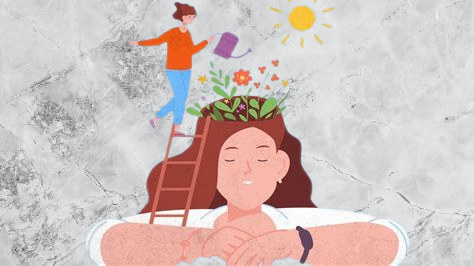Understanding Chest Pain Due to Anxiety and How to Manage It

As the year comes to a close, anxiety levels often rise. Between holiday stress and the anticipation of a new year, it’s easy to feel overwhelmed. While many are familiar with common anxiety symptoms—such as irritability, fatigue, or restlessness—there’s one symptom that can be particularly concerning: chest pain. It’s easy to mistake chest discomfort linked to anxiety for something more serious, like a heart attack, especially if you’re experiencing it during a panic attack. But how do you know whether it’s anxiety or a medical emergency?
Why Anxiety Causes Chest Pain
Anxiety triggers the body’s natural fight-or-flight response, which activates the autonomic nervous system. This leads to a flood of stress hormones like adrenaline and cortisol, which cause physical changes in the body. You might experience an increased heart rate, shallow breathing, muscle tightness, and sweating. These reactions, particularly the tightening of muscles and shortness of breath, can result in chest pain or discomfort.
Recognizing Anxiety Chest Pain
Anxiety-induced chest pain can feel very different from other types of chest pain. Here are some common descriptions of chest pain caused by anxiety: Important topics
Tightness or tension in the chest
Sharp, stabbing, or shooting pains
Persistent aching or dull pain
Numbness or tingling sensations in the chest
Muscle spasms or twitches Important topics
Though this type of chest pain can be alarming, it is usually not life-threatening. However, it’s important to differentiate it from symptoms of a heart attack, which require immediate medical attention.
How to Manage Chest Pain from Anxiety

If you find yourself experiencing chest pain during an anxiety episode, here are four strategies to help you manage the discomfort:
Acknowledge the Situation
The first step in managing anxiety-induced chest pain is to recognize that anxiety is the cause. This simple acknowledgment can help reduce fear and allow you to take control of the situation. Understanding that you’re experiencing a panic or anxiety attack rather than a heart problem can help you feel less panicked and more empowered to manage your symptoms.
Focus on Your Breathing
Anxiety can make your breathing shallow and rapid, which can worsen chest discomfort. Calming your breath is an effective way to counteract the physical symptoms of anxiety. Try these breathing exercises:
4-7-8 Breathing: Inhale for 4 counts, hold for 7 counts, and exhale for 8 counts. This technique can reduce stress and restore calm.
Box Breathing: Inhale for 4 counts, hold for 4 counts, exhale for 4 counts, and hold again for 4 counts. Repeat several times to slow down your heart rate.
Belly Breathing: This deep-breathing technique involves inhaling deeply into your diaphragm, which helps release tension and calms the nervous system.
Relax Your Body
Anxiety causes muscle tension, which can contribute to chest pain. Try gently stretching or massaging your shoulders and neck to release tightness. Progressive muscle relaxation, where you tense and then relax different muscle groups, can also help reduce overall tension.
Create a Calming Environment
If possible, remove yourself from the situation that’s causing anxiety. Find a quiet, comfortable space to sit or lie down. Dim the lights, focus on your breathing, and try to calm your mind. A peaceful environment can significantly help lower stress levels and reduce chest discomfort.
When to Seek Medical Attention
Although chest pain caused by anxiety is usually harmless, it’s important to seek medical attention if the pain feels different from typical anxiety symptoms, persists, or is accompanied by other alarming signs like dizziness, shortness of breath, or pain radiating down the arm or jaw. In those cases, it’s best to consult a healthcare professional to rule out any serious conditions. Important topics
Conclusion
Chest pain can be a terrifying symptom of anxiety, but it’s important to remember that it’s often not a sign of a heart attack. Recognizing the signs of anxiety-induced chest pain and using simple techniques like controlled breathing and muscle relaxation can help you manage it effectively. However, if you’re ever unsure, don’t hesitate to seek medical help.






[…] Biologically, mental health conditions can disrupt sleep patterns, leading to insufficient restorative sleep. For instance, anxiety may cause racing thoughts at night, preventing a person from achieving deep sleep. Depression, on the other hand, can result in excessive sleepiness or insomnia, both of which contribute to an enduring sense of fatigue. Psychologically, when a person feels overwhelmed by emotional burdens, the body’s fight-or-flight response may be activated, leaving them drained and lacking the motivation to engage in daily tasks. […]
[…] The home environment is particularly significant in this context. A cluttered or disorganized space can contribute to feelings of overwhelm and anxiety. Studies have shown that living in a disorderly space may cause distraction and heighten stress levels, making it difficult for individuals to focus on important tasks or unwind after a long day. Conversely, an organized home can promote a sense of calm, allowing individuals to feel more in control of their surroundings and thus reducing stress. Recognizing the impact of a disorganized space is vital for anyone seeking to manage stress effectively and improve their quality of life. […]
[…] In essence, self-awareness serves as a foundational pillar for emotional intelligence, informed decision-making, effective coping strategies, and personal accountability, all of which are vital for maintaining positive mental health outcomes. […]
[…] is equally important. When individuals can maintain control over their emotional responses, they are less likely to react negatively during conflicts, thereby promoting a healthier relational […]